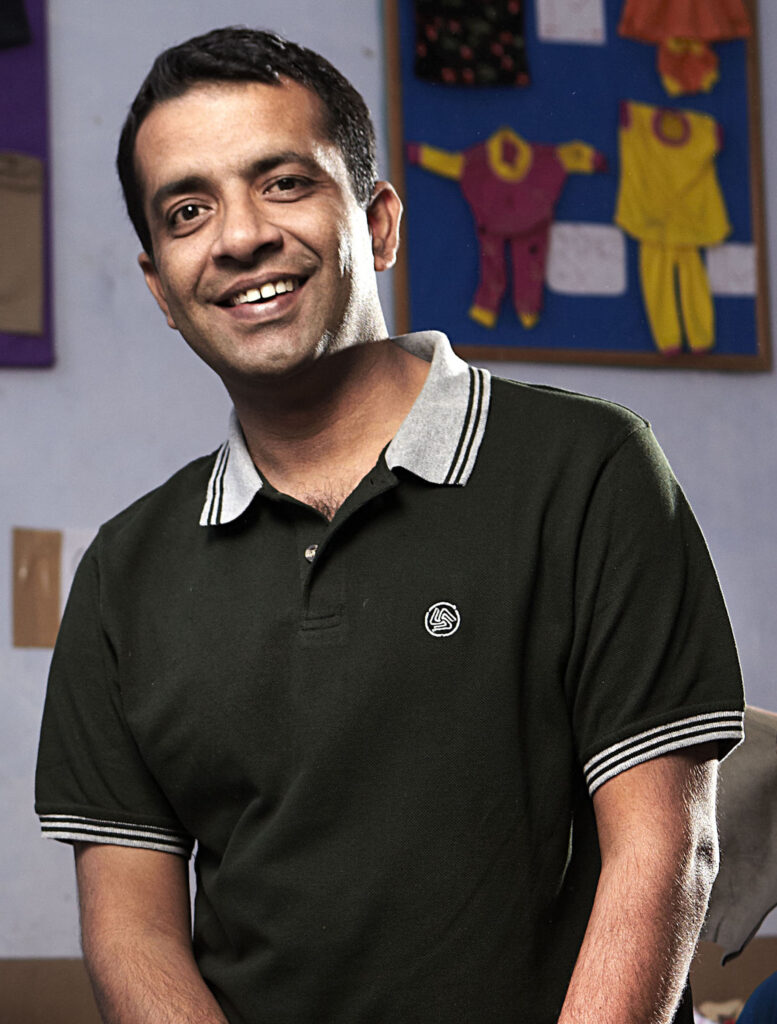Anshu Gupta and Goonj

Credit: Tushar7432
Licence: CC-BY-SA-4.0, via Wikimedia Commons
30 November 2011
| Giver: | Individual |
|---|---|
| Receiver: | Individual or unstructured/informal group |
| Gift: | Items |
| Approach: | Philanthropy |
| Issues: | 1. No Poverty |
| Included in: | International Development, Social Activism |
Anshu Gupta — popularly known as the Clothing Man — is an acclaimed Indian social entrepreneur and founder of Goonj (a Hindi word meaning “echo”), a Delhi-based NGO that seeks to foster an equitable and mutually sustaining relationship between India’s urban and rural communities. Through its flagship “Cloth for Work” program, Goonj collects surplus and discarded clothing from cities and distributes it to remote villages where basic material provisions are scarce. Rather than donating clothing as a handout, however, Goonj uses it as a form of currency to compensate villagers for their participation in locally-designed development projects – such as building a bamboo bridge or digging a well – that improve quality of life and resilience in their communities.
The Goonj model reflects Gupta’s ambitious vision to transform the culture of giving in India and globally. According to Gupta, the traditional charity paradigm unfairly grants superiority (and decision-making authority) to affluent donors, while robbing recipients of their dignity and agency — an unequal dynamic that does not promote sustained grassroots development. Goonj represents an alternative model of philanthropy by recognizing recipients as equal stakeholders in the giving transaction. While rural villages may lack financial and material wealth, they are asset-rich with the local knowledge, skills, creativity and physical capacity to take ownership of their own development challenges and solutions.
Raised in a middle-class family, Gupta was in his late teens when a near-fatal road accident left him unable to walk for a year. This temporary physical disability awakened his empathy for others in challenging circumstances, as well as his visceral resistance to being pitied or treated as a victim. While Gupta eventually regained his ability to walk, the experience transformed his worldview – and shaped his future approach to philanthropy.
As a young man with a growing awareness of India’s social problems, Gupta became intensely interested in the human need for clothing — literally, as a protection from the elements, but also symbolically, as a reflection of personal well-being. In 1998 Gupta and his wife Meenakshi founded Goonj with an armload of garments collected from their own home. Reluctant to give the clothes as charity, the Guptas devised the “Cloth for Work” model, drawing on India’s long-standing tradition of shramdaan (voluntary labor) and barter economy.
Since its inception, Goonj has evolved into a massive social enterprise with operations across India. In 2021 the organization collected 4.9 million kgs (5,400 US tons) of urban surplus, including clothing, household items, school supplies, medicine and occupational tools. These materials helped facilitate more than 17,000 rural, community-led projects across 23 states, with positive impacts for local food security, education, access to water and sanitation facilities, women’s health and income generation. Moreover, as it continues to engage urban and rural people as equal stakeholders in a circular economy, Goonj illustrates how ongoing, mindful giving can leverage collective resources to build a more sustainable and equitable world.
Contributors: Maha Tazi, Erin Brown
| Source type | Full citation | Link (DOI or URL) |
|---|---|---|
| Publication |
“Anshu Gupta – Goonj: Spearheading Social, Economic, and Environmental Impact in an Innovative, Sustainable, and Replicable Way”, IBS Center for Management Research (ICMR), 2018. |
https://bit.ly/3De8qxq |
| Publication |
Nanath, Krishnadas. “Goonj: The Power of Cloth, Emerald Emerging Markets Case Studies”, Emerald Insight, 2011. |
ISSN: 2045-0621 |
| Book |
Pruthi, Sarika. “Process of Social Entrepreneurship in India: The Case of Goonj”, Emerald Insight, 2012. |
ISBN: 978-1-78190-254-7, eISBN: 978-1-78190-255-4, ISSN: 2040-7246 |
| Book |
Mor, Surender. Microfinance Building Bridges Between Economy and Society – Challenges of Social Entrepreneurship: An Exploratory Analysis. Vista International Publishing House, 2013. |
ISBN : 978-93-81604-84-7 |
| Publication |
Chakraborty, Monalisha; Parida, Prasanta. Exploring the Aspects of Social Entrepreneurship During Covid 19 Pandemic in India, Journal of Management, 17( 2), 2021: 175-186 |
https://bit.ly/3TyCDwL |